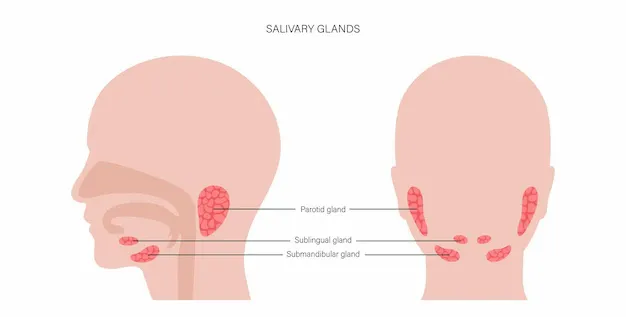
Greetings
from sitaraindaryas,
How are you my dear members? Today am here in healthy steem community for writing my new participaction post in contest that is orgnaized by community team. So, here is my participaction post.
What are the salivary glands and what is their classification?
Salivary glands are organsbased in the mouth that produce the saliva, which helps to chewing, and keeping the mouth moist. In there are three main types of salivary glands in our mouth: the parotid glands,which is located near the cheeks, which responsible to produce watery saliva; the submandibular glands, found in the beneathof the jaw, which produced a mix of watery saliva; and the sublingual glands, placed under the tongue in the mouth, which is responsible to mainly produce thick saliva. These glands are essential for digestion, and protect the mouth from different and harmful infections by keep it moist and aiding in food breakdown.
What is the function of the salivary glands?
The main function of salivary glands is the produce saliva, which helps to digest the food process. It's making it easier to chew and swallow. It also containsa amount of enzymes that provide help to breaking down food, especially for starches. Saliva helps to protect the teeth and mouth to wash food particles and bacteria. It keeps the mouth comfortable, preventing dryness and moist the mouth. Additionally, saliva helps for the formation of the bolus that is swallow. The salivary glands also plays a key role in neutralizing acid and keeping the mouth's pH balance.
What are the elements that make up saliva and what is the route from its production to the oral cavity.
Saliva is make with several elements,like that include water, electrolytes, enzyme, and antimicrobial proteins. Water makes the majority of saliva, help to keep the mouth moist and clean. Electrolytes elements like sodium, potassium, calcium, helps to maintain the balance of fluids and support enzyme functions. Enzymes, such as amylase, begins digestion process of food, breaking down starches. Mucus help to lubricate the enrire mouth and throat, making swallow easy. Antimicrobial protein protect the mouth by fight against harmful bacteria for life. Saliva is produce from the three main salivary glands: the parotid, submandibular, and sublingual gland.
What pathologies can occur in the salivary glands?
Several pathologies can create affect on the salivary glands. One of the common issue is sialadenitis, an infection or of the glands, often cause from the bacteria. Salivary stones can forms in the ducts, blocked saliva flow and causing of pain. Dry mouth occurs when the gland don't produce enough saliva, leading to discomfort and difficulty swallows. Salivary gland tumors can either malignant, affecting on gland function.
Regards,
Sitaraindaryas
Impressive
Downvoting a post can decrease pending rewards and make it less visible. Common reasons:
Submit